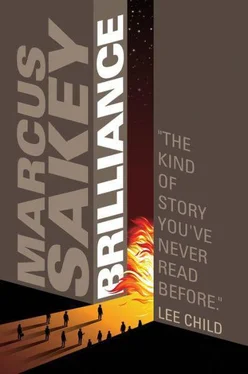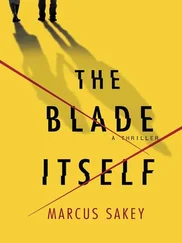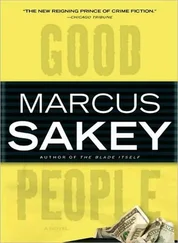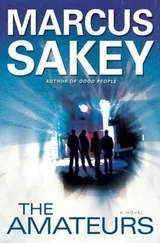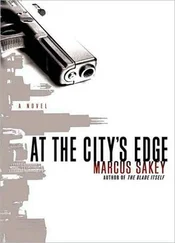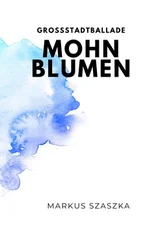He rang the doorbell. Opened and closed his hands as he waited for what seemed a long time, conscious of the security measures trained on him.
When he opened the door, Drew Peters looked at Cooper for a long moment. His accountant’s eyes took in every detail and gave nothing back. Cooper didn’t say anything, just let his very presence speak for him.
Finally the director of Equitable Services glanced at his watch. “You’d better come in.”
Cooper had interrupted dinner, so Peters brought him through the kitchen to say hello. The space was bright and homey, with hardwood countertops and glass-fronted cabinets. It had always struck Cooper as out of character with the cool gray he associated with Director Peters.
Of course, at home, he wasn’t the director; he was Dad, and Cooper was sometimes Uncle Nick. The girls usually squealed when he came in. Maggie harbored a tweenage crush, while Charlotte often begged helicopter rides.
Tonight, though, Charlotte pushed broccoli listlessly around her plate, and Maggie stared at her hands. Finally, Alana, the eldest, rose. “Hi, Cooper. Are you okay?” She’d been eleven when her mother died, and since then she’d become the de facto lady of the house, watching over the others and taking care of meals. Cooper had often felt sorry for Alana—nineteen years old and forced to act forty. He wondered who she would have turned out to be if Elizabeth had lived. Imagined she wondered that, too.
“Sure,” he said. “I’m as okay as everybody else.”
“It’s awful,” she said, and immediately looked as if she wanted to amend that, find a stronger term, a word that could encompass the bodies and the smoke and the pink shock of a child’s stuffed animal in the middle of Broadway.
“Yes.” If there was such a word, Cooper didn’t know it. “I’m sorry to interrupt dinner.”
“It’s okay. Want something?”
“No, thanks.” With that, the small talk sputtered and died.
Peters said, “Let’s talk in the study” and then led Cooper through the house, past school photographs and framed macaroni art.
The “study” was a windowless room off the back of the house, with a desk and a couch, a sidebar, two muted tri-ds running the news. There was a silver-framed photograph of Elizabeth, the director’s wife, gone eight years now and buried in Oak Hill Cemetery. Was it only this morning Drew had told him that story?
The room sported a few less-traditional features, as well: inch-thick plating beneath the drywall, hydraulic steel door, buried hard-lines running to the DAR and the White House, a panic button that would seal the place like a vault and summon an assault team. The director poured two scotches, sat down, and looked at Cooper expectantly.
So Cooper took a breath and a sip of scotch and told him everything that had happened that day, every moment of the pursuit, how close he’d been to the bomber, how he had almost stopped things. And then he shared the idea that had struck him on a NoHo street— How you gonna tell the good guys from the bad guys? —the proposal that had driven him back here despite the distance and the impropriety and especially the magnitude of sacrifice it would involve.
Drew Peters said, “That’s a preposterous notion. Absolutely not.”
“It’s not preposterous. It’s perfectly feasible.”
“I can think of a dozen ways it could fail.”
“I can think of a hundred. But it gives us a chance, a real honest-to-Christ chance to get close to him.”
“He’d see through it. See you coming.”
“Not if we went all the way with it.”
“All the way.”
“Yes. That’s the only way to get him,” Cooper said. “We’ve been doing this wrong for years.”
Peters picked up his silver pen, spun it between long fingers. If he was offended, it didn’t show in his off hand, “Oh?”
“The way we’re working now, we have to bat a thousand just to tie. Say I’d been able to get to the bombs today. If I disarmed four of them and the fifth went off, it’s a win for Smith. If I disarmed them all, but if the press found out they’d been planted, it’s still a win. He can hit us anywhere, anytime, and any hit is a victory. We have to protect everywhere, all the time, and the best we can do is tie. A perfect defense alone never wins.
“If we want to end this, if we want to keep things from escalating, if we want to win , we have to neutralize John Smith. And this is a way to do it.”
“Not a way,” Peters said. “A chance.”
“That’s better than no chance.” Cooper took a swallow of scotch. He was exhausted, and the drink smoothed some of the rough edges. Cooper waited. The director gave nothing away, but the tiny muscles of his nose, his ears, the miniscule tensing of his shoulders, all said he was considering it.
“You understand what would be entailed? Just naming you rogue wouldn’t be enough,” Peters said. “I’d have to designate you a target.”
“Yes.”
“I won’t be able to hold back. The preliminary reports I’ve seen put the dead at more than a thousand. And this attack was in the heart of Manhattan. There will be no half measures. I’d have to cast you down like Lucifer. I can keep you off the news—probably—but within the agency, there’d be nothing I could do for you.”
“I know.”
“You’ll be more hated than John Smith ever was. Because you were one of us, and you betrayed us. Every resource in the department’s power will be aimed at you. There will be thousands of people hunting you. Literally thousands. If you’re captured, I can reveal the truth. But—”
“But no one is going to try to capture me. If they have a shot, they’ll take it.”
“That’s right. And meanwhile, you’re going to be on your own. No resources. No requisitioned helicopters, no phone taps, no surveillance teams. No backup. Nothing.”
Cooper just sipped his scotch. Nothing Peters was saying was a surprise to him. He’d had time to think it out on the flight down.
All commercial flights had been grounded, so he’d badged his way onto a Marine Corps C-130 and ridden in with a squad of jarheads. The boys were extra gung ho under the circumstances, but he could see the hurt under the oo-rah. America wasn’t used to being hit this way, to an attack in the heart of its strength.
The response would be devastating. There would need to be a blood payment. The country would demand it.
It wouldn’t be long before it got out that the bombing was John Smith’s work. And in America’s overwrought state, most people wouldn’t make the distinction between abnorms and abnorm terrorists.
After all, it was abnorms who had forced the stock market to close in the first place. Abnorms who were taking the lead in every field. Abnorms who were making the rest of humanity feel small and secondary.
You can’t stop the future. All you can do is pick a side. Alex Vasquez’s voice in his head.
Not an easy choice. And more complicated than she would have admitted. Was he a government agent hunting terrorists, or a father whose daughter was in danger? Was he a soldier or a civilian? If he believed in America, did that mean he had to accept the academies?
All right, Alex. I’ve made my choice. But right now, this hour in the sky, this hour is for me. He’d leaned against the metal skin of the airplane, felt the thrum of the turboprops, the cold of the air rushing past, and he let himself think of what he was about to risk. All that he might lose. The staggering costs of the plan he was proposing.
And when he landed, he’d pushed that kind of thinking aside and begun to act. Now he stared across the table at the director, at the man’s pale, calm eyes, and he said, “I can do this.”
Читать дальше
